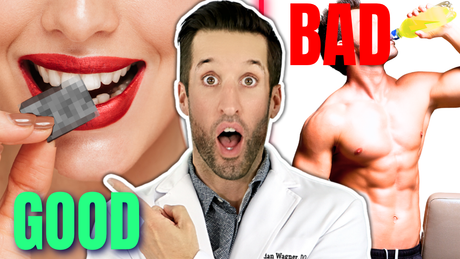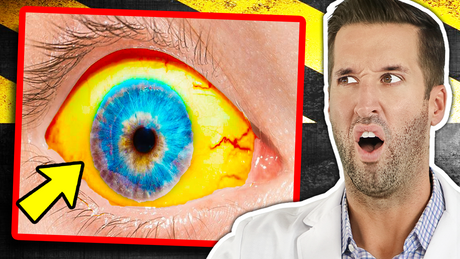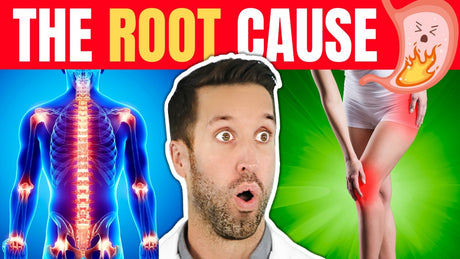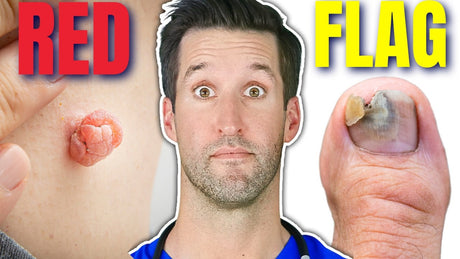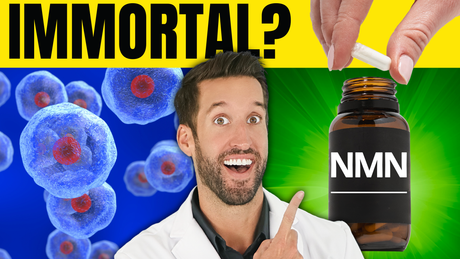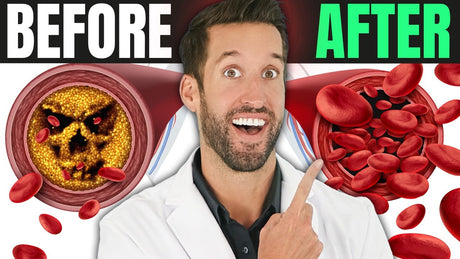When your body is trying to tell you something, it often does so through physical symptoms. You might overlook these signs, but they could be critical indicators of underlying health issues or vitamin deficiencies. Here are 10 warning signs you should pay attention to:
1. Brittle Nails
If your nails crack or break easily, it might signal a biotin deficiency. Biotin (Vitamin B7) is essential for nail health, and a lack of it can lead to weak, brittle nails. Boost your biotin intake with foods like eggs, nuts, and seeds or consider a biotin supplement.
2. Tingling in Hands and Feet
Tingling or numbness in your hands or feet may indicate a Vitamin B12 deficiency. B12 is essential for nerve function, and a lack of it can cause nerve damage, resulting in that "pins and needles" sensation. If you follow a vegan or vegetarian diet, consider supplementing with B12 to avoid deficiency.
3. Cracked Corners of the Mouth
Also known as angular cheilitis, cracked corners of the mouth can indicate deficiencies in iron or B vitamins like riboflavin (Vitamin B2). Increase your intake of leafy greens, whole grains, and lean proteins to combat this issue.
4. Slow Wound Healing
If cuts or wounds are taking longer than usual to heal, it may be due to a zinc deficiency. Zinc is crucial for cell repair and immune function. Foods rich in zinc include shellfish, beef, and fortified cereals. A zinc supplement may help speed up recovery.
5. Itchy or Flaky Scalp
An itchy, flaky scalp could be a sign of Omega-3 fatty acid deficiency. These healthy fats are essential for skin and scalp health. If you're not getting enough Omega-3s from fish like salmon or flaxseeds, consider a high-quality fish oil supplement.
6. Weakness or Dizziness
Feeling weak or dizzy might indicate a potassium deficiency. Potassium helps maintain proper muscle function and electrolyte balance. Bananas, oranges, and spinach are excellent sources of potassium.
7. Frequent Bruising
Easy bruising can be a sign of a Vitamin K deficiency, which is crucial for blood clotting. Low iron levels can also contribute to frequent bruising by affecting red blood cell production. Foods like kale, spinach, and broccoli can help increase your Vitamin K intake.
8. Cold Hands and Feet
Constantly cold hands and feet may indicate poor circulation linked to an iron deficiency. Boost your iron intake with red meat, lentils, and spinach to improve circulation and keep your extremities warm.
9. Bad Breath
While many factors can contribute to bad breath, it could also signal a Vitamin D deficiency. Vitamin D supports oral health, and a lack of it can contribute to gum disease, which in turn leads to bad breath. Make sure you're getting enough sun exposure or supplementing with Vitamin D if necessary.
10. Depression or Anxiety
Feeling more anxious or depressed lately? It could be due to a magnesium deficiency. Magnesium plays a key role in regulating mood and reducing feelings of anxiety. Leafy greens, nuts, and seeds are excellent sources of magnesium, but if you're looking for additional support, consider trying Chillax by Life Happns. Chillax is formulated with magnesium, L-theanine, and saffron to help promote calm and relaxation.
Supplements to Support Your Health
If you're experiencing any of these symptoms, it's important to consult with your healthcare provider to ensure you're getting the proper nutrients. Life Happns has developed supplements like Chillax for occasional stress and Do Not Disturb for better sleep, both packed with essential ingredients to support your overall well-being. Check out our full range of supplements on LifeHappns.com.
---
Studies & References:
- Molecular Brain – Biotin Deficiency and Nail Health
- Neuroscience News – Vitamin B12 and Nerve Damage
- Cleveland Clinic – Zinc for Wound Healing
- Journal of the American College of Nutrition – Omega-3s and Scalp Health
- Frontiers in Physiology – Potassium Deficiency and Dizziness
- Harvard Health – Vitamin K Deficiency and Bruising
- Journal of Clinical Endocrinology – Vitamin D and Bad Breath
- American Journal of Clinical Nutrition – Magnesium and Mood Regulation
All information on the Life Happns website is for informational purposes only, and is not intended to be used for medical advice, diagnosis, or treatment. Always seek the advice of your physician or other qualified health provider with any questions you may have regarding a medical condition or before starting any new supplement or health regimen.
